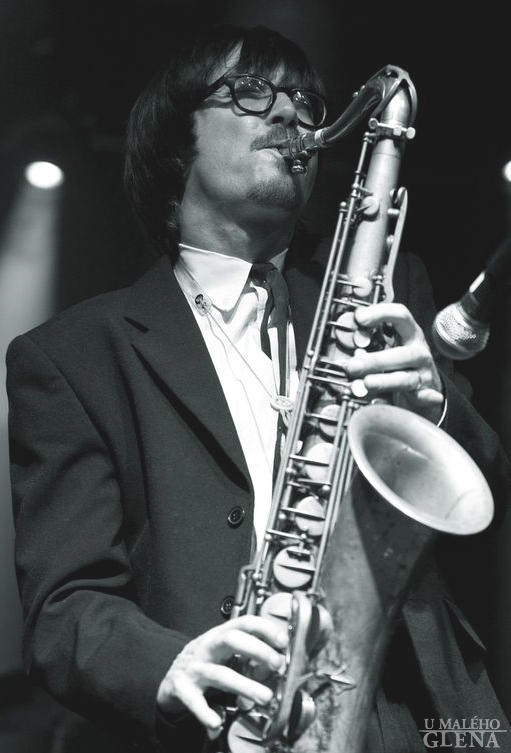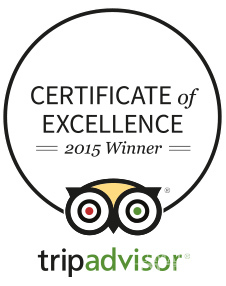
Osian Roberts - tenor sax player, composer & arranger
(Wales)
What brought you to the saxophone?
I’m from a very musical family, so it was almost inevitable that I’d learn to play an instrument sooner or later. My father’s an opera singer, and my grandfather on my mother’s side was a classical composer, teacher, and multi-instrumentalist; so my mother was taught the oboe, and her three brothers played cello, flute, clarinet, guitar, bassoon etc. (and everyone could play the piano!) so there was always classical music around me.
The first time I remember thinking “I really want to play an instrument” was at a big family gathering one Christmas when my older cousin got out his trumpet and played “When The Saints Go Marchin’ In”, and everyone who could play an instrument (which was pretty much everyone except me) joined in. I must’ve been about 4 or 5, and I remember being really excited by the spontaneous music, but also sad because I couldn’t take part!
Having said that, I didn’t really do anything about it until I was 9 years old, which is when I first heard Glenn Miller’s “In The Mood” on the radio, and was knocked out by it. I asked my mother what instrument was playing the tune, and she said it was a saxophone, and it kind of snowballed from there. Soon after that I saw a saxophone in a shop window and thought it was the most amazing instrument I’d ever seen (no one played saxophone in my family) and it became my mission in life to get a saxophone and learn to play it. I’m still trying!
What do you look for and enjoy in music?
Honestly, on a fundamental level, I don’t think my musical taste has changed very much since I was born (although I hope my musical knowledge has increased since then)! I’ve always gravitated towards music that has interesting harmonic and melodic movement, by which I mean music that takes me on an emotional journey. It fascinates me how going from one chord or tonal area to another can change my emotions in an instant, and how shifting harmonies can give one note different feelings.
Long before I knew anything about music or even thought about becoming a musician, I loved to hear things like Faure’s Pavane, and Chopin’s Prelude in E Minor (which my mother used to play on the piano a lot), or Mozart’s 40th symphony and so on. That music would always stop me in my tracks, draw me in and really move me, which is why I strongly believe that you don’t have to understand music theory to appreciate music. I also loved listening to things with a strong pulse, so if something was groovy and had interesting harmony (things like Lovely Day by Bill Withers, or Harvest For The World by the Isley Brothers), I really loved it. I didn’t really pay any attention to lyrics until much later in life when I started getting into Frank Sinatra (probably because I could never understand what singers were saying, whereas Frank’s really easy to understand!)
In a nutshell, I’ve always been into beautiful melodies, harmonies and a good groove.
I don’t care if it’s new or old, or what genre it is, or if it’s original or not; if one or more of those elements are present, and it’s played with love and conviction, I’ll probably dig it!
What makes jazz special to you?
It has all the elements that I mentioned and more: You won’t find melodies more thrilling and exciting than in Bird’s or Coltrane’s solos; or harmonies more beautiful than in the tunes of Gershwin, Cole Porter, Jerome Kern, Jimmy Van Heusen, and the rest of the composers whose standards make up the ‘Great American Songbook’ (the meat and potatoes of jazz repertoire); and I’ve yet to hear stronger grooves than those of Elvin Jones, Art Taylor, ‘Philly’ Joe, or Louis Hayes! On top of all that, jazz has - to a greater degree than many other forms of music - an element of spontaneity, thanks to the huge role that improvisation plays. It’s one of the few art forms where the creator is hearing the finished work at the same time as the audience. Each member of a jazz quartet has a prescribed role, but within that role there’s a lot of freedom, so each musician can change the mood and direction of the music at any point, which makes it really exciting to play, and - hopefully - to listen to.
Tell us about your new quartet...
I do a lot of work as a sideman (playing in other people’s bands), so I’m really looking forward to have the opportunity to choose and play some of my favourite tunes - mostly standards that aren’t played very often - with some of my favourite musicians. As a jazz player, you can’t ask for more than that!
What about a few words about U Maleho Glena?
I think jazz is intimate music, a shared experience with everyone present, musicians and audience alike, so the closer you are to the musicians, the better it is, which is why U Maleho Glena is my favourite place to play!










